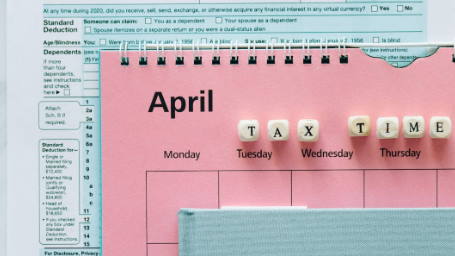The 2024 Tax Filing Season is an important period for individuals and businesses to prepare and submit their tax returns for the previous year. Understanding the key dates and deadlines is crucial to ensure compliance and potentially maximize your tax benefits. Here’s a comprehensive guide to help navigate the 2024 Tax Filing Season.
January 2024: Tax Season Begins
The official start of tax season is set for January 29, 2024, which falls on a Monday. From this date, the IRS will begin accepting and processing tax returns for the year 2023.
When is the deadline to file taxes?
For the majority of taxpayers, the deadline to file their returns or request an extension is Monday, April 15.
- 30% off order at E-file
- $1,000 back in with TurboTax Students
- Free Tax Filing with TurboTax Free Edition
- TurboTax Free Edition
- File Your Taxes For Free @ E-File
- File 100% FREE with TurboTax expert help
- Free Online Tax Filing & E-File Tax Prep
- 50% Cheaper Tax Filing
- TurboTax for Students
- How can I get IRS penalty waived?
Early January: The IRS officially opens the 2024 Tax Filing Season. Taxpayers can begin preparing their tax returns for the 2023 fiscal year.
Mid-January: IRS starts accepting and processing individual tax returns. Electronic filing is highly recommended for quicker processing and refunds.
February 2024: Priority Filing
Early February: It’s advisable to file early, especially if you expect a refund. Early filers often receive their refunds more quickly.
Mid-February: This is a crucial time for taxpayers claiming Earned Income Tax Credit (EITC) or Additional Child Tax Credit (ACTC). The IRS is legally required to hold refunds involving these credits until mid-February.
March 2024: Check Your Status
By March, most taxpayers who filed early should have received their refunds, especially if they chose direct deposit and filed electronically.
Late March: If you haven’t filed your taxes yet, it’s a good time to start gathering your documents and prepare your return.
April 2024: Tax Day

April 15: The official deadline to file tax returns or request an extension. If this day falls on a weekend or a holiday, the deadline is extended to the next business day.
April 15: Also the deadline to pay any tax owed. Even if you file for an extension, any owed taxes are still due by this date to avoid penalties and interest.
May – June 2024: Late Filing and Extensions
If you’ve filed for an extension, use this time to complete your tax return. Remember, the extension only applies to filing, not to any taxes you owe.
Late filing during this period can result in penalties, so it’s advisable to act promptly.
July – August 2024: Last Call for Extensions

July 15: Last day for U.S. citizens living abroad to file their tax returns.
Mid-August: If you requested a six-month extension, you should be finalizing and submitting your tax return.
September – October 2024: Extension Deadline
October 15: The final deadline for those who requested a six-month extension. Filing after this date can result in significant penalties and interest.
November – December 2024: Prepare for Next Year
It’s never too early to start preparing for the next tax season. Review your financial situation, adjust withholdings if necessary, and gather relevant financial documents.
Late December: Look out for any tax law changes that could affect your filing for the next year.
Tips for a Smooth Tax Season
- Organize Your Documents: Keep all your tax-related documents in one place. This includes W-2s, 1099s, receipts for deductions and credits, and previous year’s tax return.
- Understand Tax Law Changes: Stay informed about any changes in tax laws that may affect your filing.
- Use Reliable Tax Software or a Professional: Whether you choose to file taxes yourself using software or hire a professional, ensure they are reliable and well-versed in current tax laws.
- Check Eligibility for Deductions and Credits: Be aware of any deductions or credits you may be eligible for to reduce your tax liability.
- File Electronically and Opt for Direct Deposit: Electronic filing with direct deposit is the fastest way to get your refund.
- Be Aware of Scams: Protect your personal information and be cautious of tax scams, especially during tax season.
The 2024 Tax Filing Season is a critical time for financial management and compliance. Staying informed about key dates and deadlines, organizing your documents, and understanding your tax obligations can make the process more manageable and less stressful. Whether you’re filing early or closer to the deadline, proper preparation is key to a successful tax season. Remember, if you’re unsure about any aspect of your tax return, consulting with a tax professional is always a wise decision.

How can I get IRS penalty waived?
Getting an IRS penalty waived involves understanding the guidelines set by the Internal Revenue Service (IRS) and, often, demonstrating reasonable cause. Here are some steps and considerations:
Understand Why the Penalty Was Assessed: Before requesting a waiver, make sure you understand the reason for the penalty. Common penalties include failure to file, failure to pay on time, and failure to deposit certain taxes as required.
Check for First-Time Penalty Abatement Eligibility: The IRS offers a first-time penalty abatement (FTA) waiver for taxpayers who haven’t previously had to pay a penalty. To qualify, you typically need to have no penalties for the prior three years, have all currently required returns filed or extensions submitted, and have paid, or arranged to pay, any tax due.
Demonstrate Reasonable Cause: If you don’t qualify for the first-time abatement, you can still request a waiver by demonstrating reasonable cause. This means explaining the circumstances that led to the penalty, such as natural disasters, serious illness, or other uncontrollable events. Providing documentation to support your claim can strengthen your case.
Write a Penalty Abatement Letter: Draft a letter to the IRS explaining why you believe the penalty should be waived. Include your name, address, tax identification number (like your Social Security number), the tax year or years involved, the penalty amount, and a detailed explanation of your situation with supporting documents.
Consider Using Form 843: For certain penalties, you may use Form 843, “Claim for Refund and Request for Abatement.” This form is appropriate for specific types of penalties and should be accompanied by a written statement detailing the reasons for your request.
Consult a Tax Professional: If you’re unsure about how to proceed or if your case is complex, it’s advisable to consult with a tax professional. They can provide guidance specific to your situation and assist with drafting and submitting your request.
Be Patient and Follow Up: After submitting your request, be prepared for it to take some time for the IRS to respond. Keep copies of all correspondence and documents. If you don’t hear back or if your request is denied, you have the right to appeal the decision.
Remember, each case is unique, and the success of a penalty abatement request depends on individual circumstances and the taxpayer’s compliance history. It’s important to address IRS notices promptly and stay informed about your rights and options.
Similar StoresTax Preparation
Free Tax Software
TurboTax Free Edition: Experience Zero-Cost Tax Filing
Which TurboTax version is best for you in 2024?
Tax Filing Season Dates
TurboTax vs. H&R Block
9 Ways You Can Save on Taxes This Year
TurboTax Desktop Deals
Small Business Tax Software
Free Student Tax Filing
e-file.com | E-file.com Premium Plus | Deluxe Plus Edition
TurboTax | TurboTax Deluxe | TurboTax Premium | TurboTax for Student
H&R Block
TaxSlayer
Jumpstart Your Taxes: Unbeatable Deals
Tax Season FAQs – Frequently Asked Questions
Early Bird Discounts: Take advantage of early tax filing offers
Jackson Hewitt




